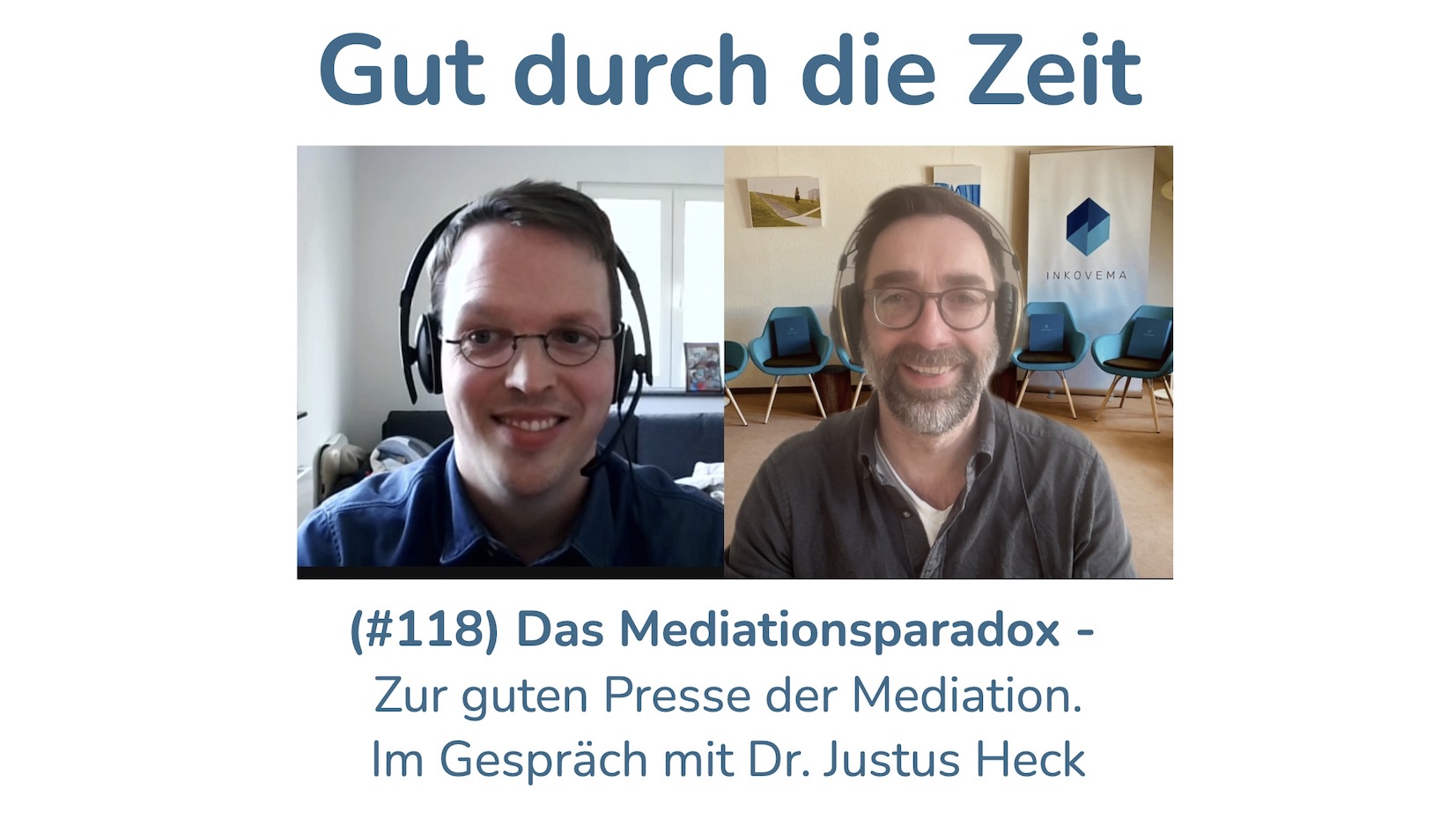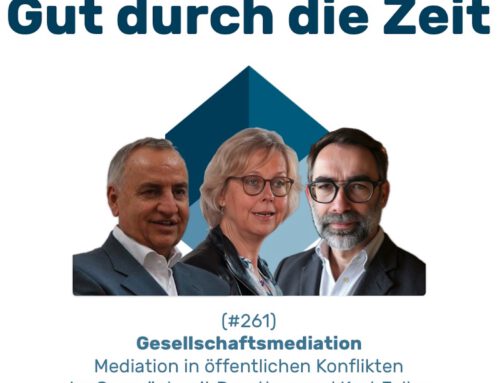INKOVEMA Podcast „Well through time“
#118 – The mediation paradox
On the good press of mediation and the teething troubles of mediation practice. In conversation with Dr Justus Heck
Well through time. The podcast about mediation, conflict coaching and organisational consulting.
Dr Justus Heck, sociologist and expert on mediation and third parties in conflict resolution. From January 2020 to 2022 research assistant at Bielefeld University, his dissertation „The Mediation Paradox“ was published in 2022.
Contents:
The mediation paradox:
Mediation as a method of conflict resolution is generally considered to be inexpensive, quick, less costly, successful and autonomous, as the mediator has no decision-making authority in the matter. Nevertheless, this mediation process is not utilised and commissioned by conflict parties to the expected extent. Trained mediators who offer this procedure hardly receive any significant commissions.
Mediation has good press, so even non-mediators speak highly of mediation, so you have to realise that the idea of „mediation“ is spreading far and wide.
Good press for mediation = spreading the idea of mediation:
- Academisation of mediation in training, research and theorisation
- Development of interest groups and associations
- Promotion of the idea by the legislator
- Promotion of the idea through government programmes
- Funding through foundations
- Promotion through good press (in the real sense)
Negative film of the good press on mediation
- Criticism of the judiciary
- Court criticism
- Criticising the legal system
On the dispute as to whether mediation is a (diffusion) flop or a (diffusion) success.
Background question: Is the benchmark for evaluating mediation the dissemination of the idea or the implementation of the idea in conflict management practice?
Hurdles for the mediation idea when transferring it to conflict management practice
- Strangeness: An unknown third person, whose task is rather counter-intuitive, should be given the opportunity to observe and influence.
- ReputationlessThe third person cannot be attributed a reputation solely through their professionalisation as a mediator.
- Private monetary input/fee payment
Reputation sources:
- Own mediation practice
- Social awareness/authority
- Age
- Field experience
- Third party recommendations
These reasons mean that the current practice is characterised by a certain „Matthäus-Effekt“ (To him who has, shall be given.).
The mediation market is characterised by a Matthew effect labelled:
To him that hath shall be given“





Leave A Comment